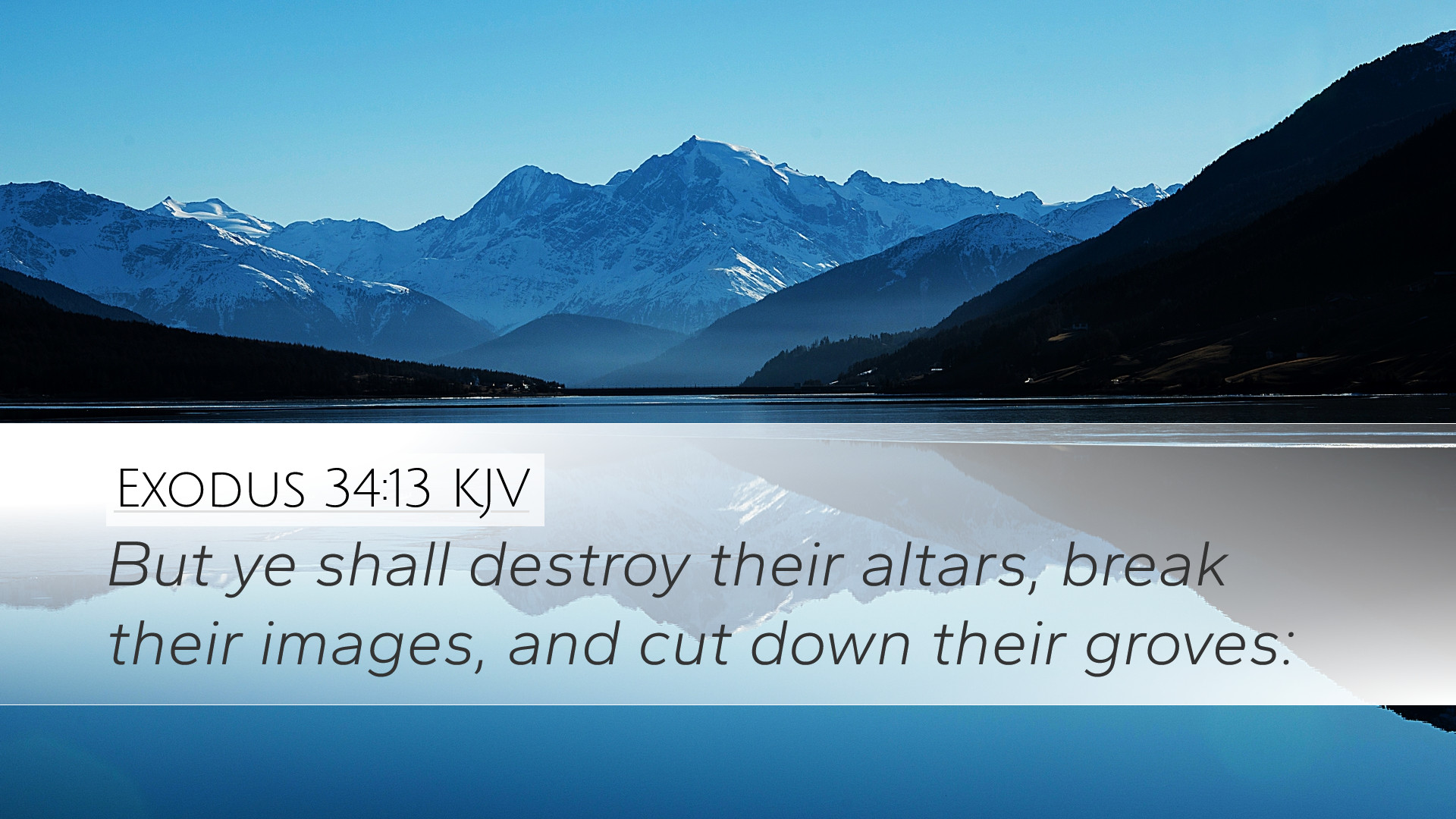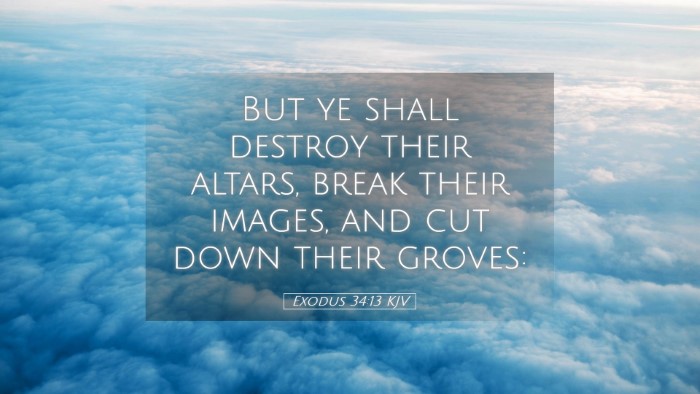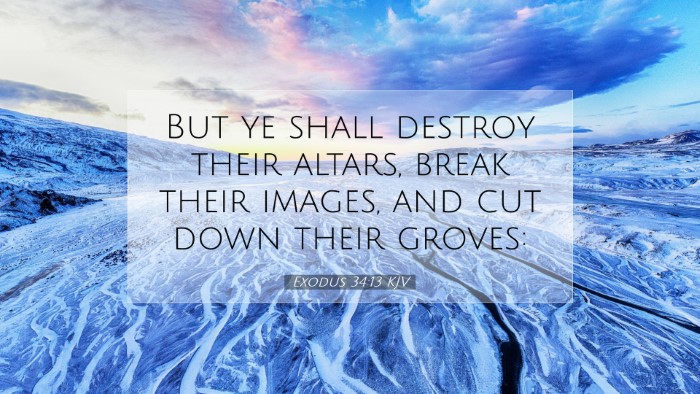Commentary on Exodus 34:13
Exodus 34:13 states, "But you shall destroy their altars, break their sacred pillars, and cut down their wooden images." This verse emphasizes the necessity of purging the land of idol worship and the critical call to fidelity to Yahweh.
Contextual Overview
In this passage, God is instructing Moses on how the Israelites should conduct themselves as they enter the Promised Land. The commandments include a clear directive against the worship of foreign gods, which reflect the covenant relationship that God desires with His people.
Insights from Matthew Henry
Matthew Henry emphasizes the importance of 'destroying the altars' as a metaphor for removing all forms of idolatry from the community. He points out that the Israelites must not only refrain from participating in pagan rituals but must also actively eliminate any physical representations of those practices. Henry argues that this reflects God's holiness and His desire for an undivided commitment from His people.
Furthermore, Henry highlights that God’s covenant demands exclusive loyalty, which requires decisive action against anything that competes for the worship due to Him alone. The act of destroying altars is treated as an act of purification that is necessary for true worship.
Insights from Albert Barnes
Albert Barnes provides a historical context, explaining that the altars mentioned were likely associated with various Canaanite deity worship. He notes that the command to destroy such altars is both a physical and spiritual admonition. Barnes insists that God's people must distinguish themselves from surrounding nations by embracing true worship fully.
Additionally, Barnes emphasizes that the destruction of these altars goes beyond mere physical removal; it symbolizes a rejection of all that is contrary to the worship of the true God. This represents not only a social and political shift for the Israelites, but also a deep spiritual commitment.
Insights from Adam Clarke
Adam Clarke adds layers of interpretation regarding the 'sacred pillars' and 'wooden images.' He notes that these items were deeply imbedded in the Canaanite religious practices, serving as symbols of fertility and power. Clarke emphasizes that by cutting down such structures, the Israelites are to dismantle the very foundation of the beliefs that would lead them astray from God's commandments.
Moreover, Clarke underscores that the command is not merely punitive but is aimed at the spiritual welfare of the Israelite community. The removal of these items aids in maintaining the focus on true worship, thereby fostering a relationship based on devotion and devotion that excludes all competing loyalties.
Theological Implications
This verse and the surrounding context provide significant theological implications that are profoundly relevant for today’s believers:
- God’s Holiness: The need to eliminate pagan worship underscores the holiness of God and the seriousness with which He regards idol worship.
- Exclusive Worship: This command indicates that God's people are called to an exclusive relationship with Him, prohibiting divided loyalties.
- Consistency in Worship: The need for consistency in worshipping Yahweh above all other gods highlights the dangers of syncretism that still affects modern faith communities.
- Active Discipleship: The verse communicates the active role believers must take in confronting and dismantling influences that detract from their faith.
Practical Applications
For pastors, students, and theologians, this scripture encourages the following practical applications:
- Teaching on Idolatry: Use this passage to educate congregations about the dangers of idolatry in all forms, encouraging them to identify modern "altars" in their lives.
- Fostering a Community of Purity: Create a church culture that prioritizes holiness and seeks to live in a way that honors God above all.
- Encouraging Personal Reflection: Challenge individuals to evaluate their lives for competing loyalties that may distract from their commitment to God.
- Highlighting God’s Faithfulness: Emphasize that God, in His instructions, is not merely limiting their freedom but guiding them towards a deeper relationship with Him.
Conclusion
Exodus 34:13 serves as a crucial reminder of God's call to His people to eliminate anything that detracts from their devotion to Him. The insights from Matthew Henry, Albert Barnes, and Adam Clarke illuminate the deep necessity for God's people to maintain their fidelity in worship. In every generation, this verse challenges believers to engage with their cultural context by tearing down modern 'altars' and committing themselves fully to the exclusive worship of the one true God.


